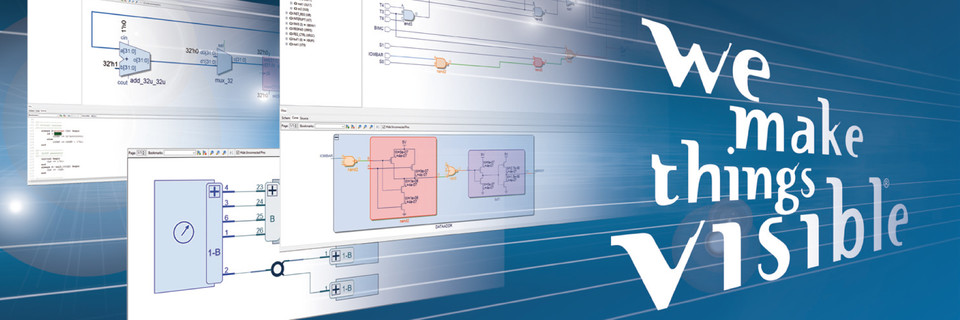
Register for a RTLvision® PRO Evaluation
To apply for a free evaluation, please complete the form below. We need your registration to provide you support and to process your evaluation; The registration procedure includes creating a download account and a FLEXnet license file to run RTLvision® PRO on your computer. Please specify the required information (required fields are marked with a) and then press the Submit button.
How to get the FlexNet hostID?
We use Flexera's FlexNet software for license protection. To provide you with a license file, we need the "hostID" information of either your computer or of your floating license server.
Easy methods to obtain the hostID
Linux
The MAC address ("Physical Address") of the network adapter is
used as the hostID.
You can determine the MAC address by running either /sbin/ifconfig -a or /sbin/ip -br link (depending on your Linux flavour) in a terminal:
% /sbin/ifconfig -a
...
eth0: flags=4163<UP,BROADCAST,RUNNING,MULTICAST> mtu 1500
inet 192.168.1.175 netmask 255.255.255.0 broadcast 192.168.1.255
inet6 fe80::10fc:ccb:fa7f:1803 prefixlen 64 scopeid 0x20<link>
ether 00:12:34:56:78:9A txqueuelen 1000 (Ethernet)
...
% /sbin/ip -br link
...
eth0 UP 00:12:34:56:78:9A <BROADCAST,MULTICAST,UP,LOWER_UP>
...
The primary network interface is typically called eth0, enp3s0, etc.
Remove the colons (:) to get the hostID.
In this example, the hostID is 00123456789A (the result is always 12 characters).
Copy this value into the "Your FlexNet hostID" field above.
Note: The Linux hostid command reports a 6- or 8-character result –
this is not a valid hostID for the FlexNet license software!
Windows
The MAC address ("Physical Address") of the network adapter is used as the hostID. Start a command prompt (Click Start->Run and type "cmd") and type the following:
C:\> ipconfig -all
Ethernet adapter Local Area Connection:
...
Physical Address. . . . . . . : 00-50-56-B3-68-A5
Remove the hyphens (-) to get the hostID.
In this example, the
hostID is 005056B368A5 (the result is always 12 characters).
Copy this value into the "Your FlexNet hostID" field above.
Solaris
On all Solaris machines the command hostid can be used to determine
the hostID of the system.
Start a terminal and type in the following:
% /usr/bin/hostid
84c3c53a
The result (in the example: 84c3c53a) is the hostID and is always eight characters.
Copy this value into the "Your FlexNet hostID" field above.
Using "lmutil" or "lmtools.exe" to get the hostID
If there already is a working FlexNet installation on your computer,
you can use FlexNet's command line tool lmutil to query the computer's
host ID.
Open a command terminal window (e.g. xterm on Linux/Solaris, or cmd.exe on Windows)
and type lmutil lmhostid:
$ lmutil lmhostid
lmutil - Copyright (c) 1989-2015 Flexera Software LLC. All Rights Reserved.
The FlexNet host ID of this machine is "0018f322ceb6"
In this example, the computer's host ID is 0018f322ceb6.
Copy this value into the "Your FlexNet hostID" field above.
Notes for Windows Users
lmtools.exe, a graphical frontend for the licensing tools, which can also be found at the Flexera download page, is an alternative to lmutil on Windows. If you prefer lmtools, here is some help:
Start lmtools and press the "hostID" Button. The 2nd last line is a single hex number – that's the hostID to be specified in the field "Your FLEXnet hostID" above. However, if that field is 0 or ffffffffffff, or if you are unsure, please copy & paste all the output into the field "General comments" above. The best way to do copy & paste probably is: Use the "Save Text" button to save the output into a file and then use a text editor (e.g. MS Word) to open that file and then use the text editor's "Copy & Paste".
